Duration: 7 hours
11 Lessons
The AWS training program aims to provide a comprehensive understanding of Amazon Web Services, covering essential topics from cloud benefits and deployment models to specific AWS services and solutions.
Participants will learn about AWS’s pay-as-you-go pricing, compute services like EC2 and Elastic Load Balancing, and the global infrastructure including Availability Zones and CloudFront.
The program delves into networking concepts, storage options, security practices, and monitoring tools like CloudWatch and CloudTrail. It also covers pricing and support models, migration strategies, and innovative AWS solutions.
Module 1: Introduction to Amazon Web Services
Module 2: Compute in the Cloud
Module 3: Global Infrastructure and Reliability
Module 4: Networking
Module 5: Storage and Databases
Module 6: Security
Module 7: Monitoring and Analytics
Module 8: Pricing and Support
Module 9: Migration and Innovation
Module 10: The Cloud Journey
Module 11: AWS Cloud Practitioner Basics
View the Curriculum
Duration: 40 hours
7 Lessons
The AWS Solutions Architect – Associate course aims to provide comprehensive training for individuals preparing for the AWS Solutions Architect – Associate exam.
This course covers essential knowledge and practical skills required to design, deploy, and manage scalable and reliable solutions on Amazon Web Services (AWS).
Module 1: Introduction to AWS (3 Hours)
Module 2: Designing Resilient Architectures (8 Hours)
Module 3: Designing High-Performing Architectures (8 Hours)
Module 4: Designing Secure Applications and Architectures (8 Hours)
Module 5: Designing Cost-Optimized Architectures (4 Hours)
View the Curriculum
Duration: 40 Hours
The AWS DevOps Engineer – Professional course is designed to provide in-depth knowledge and practical skills necessary for implementing and managing DevOps practices on AWS.
The course prepares candidates for the AWS DevOps Engineer – Professional exam and equips them with the expertise to handle complex operational tasks, automation, monitoring, and security in AWS environments.
Module 1: Introduction to DevOps on AWS
Module 2: Implementing Continuous Integration and Continuous Deployment
Module 3: Infrastructure as Code and Automation
Module 4: Monitoring, Logging, and Performance Optimization
Module 5: Security and Compliance
Module 6: High Availability, Backup, and Disaster Recovery
Module 7: Hands-On Labs and Practical Exercises
View the Curriculum
Duration: 40 hours
7 Lessons
The AWS SysOps Administrator – Associate course is designed to equip IT professionals with the skills and knowledge required to manage and operate AWS environments effectively.
The course prepares candidates for the AWS SysOps Administrator – Associate exam by covering key concepts and practical skills necessary for deploying, managing, and operating AWS solutions.
Module 1: Introduction to AWS Systems Operations (3 Hours)
Module 2: Deploying and Managing AWS Infrastructure (8 Hours)
Module 3: Monitoring, Reporting and Automation (8 Hours)
Module 4: High Availability, Backup and Recovery (8 Hours)
Module 5: Security and Compliance (6 Hours)
Module 6: Cost and Performance Optimization (4 Hours)
Module 7: Hands-on Labs and Practical Exercises (5 Hours)
View the Curriculum
Duration: 24 hours
6 Lessons
The Microsoft Azure Fundamentals course aims to provide participants with a comprehensive understanding of Microsoft Azure, the foundational cloud concepts, and essential Azure services.
The course prepares individuals for the AZ-900 exam, which validates their knowledge of cloud services and how those services are provided with Microsoft Azure.
Module 1: Introduction to Azure (2 Hours)
Module 2: Core Azure Services (6 Hours)
Module 3: Security, Privacy, Compliance and Trust (4 Hours)
Module 4: Azure Pricing and Support (3 Hours)
Module 5: Azure Solutions and Management Tools (3 Hours)
Module 6: Hands-on Labs and Practical Exercises (6 Hours)
View the Curriculum
Duration: 4o hours
7 Lessons
The Microsoft: Azure Administrator Associate course is designed to provide comprehensive training for individuals seeking to become proficient in managing and administering Microsoft Azure environments.
The course prepares participants for the AZ-104 exam, focusing on core Azure administration skills necessary for managing Azure resources effectively.
Module 1: Azure Administration Overview (2 Hours)
Module 2: Implement and Manage Storage (6 Hours)
Module 3: Deploy and Manage Azure Compute Resources (8 Hours)
Module 4: Configure and Manage Virtual Networking (8 Hours)
Module 5: Monitor and Back Up Azure Resources (6 Hours)
Module 6: Implement and Manage Azure Governance and Security (6 Hours)
Module 7: Hands-on Labs and Practical Exercises (10 Hours)
View the Curriculum
Duration: 40 hours
7 Lessons
The OpenStack Administrator course is designed to equip participants with the knowledge and skills required to effectively manage and administer OpenStack environments.
This course prepares individuals for the COA exam by providing a comprehensive understanding of OpenStack’s core components, installation, configuration, and management practices.
Module 1: Introduction to OpenStack (3 Hours)
Module 2: Installation and Configuration (8 Hours)
Module 3: Managing OpenStack Compute (8 Hours)
Module 4: Managing OpenStack Networking (8 Hours)
Module 5: Managing OpenStack Storage (6 Hours)
Module 6: Monitoring and Troubleshooting (4 Hours)
Module 7: Hands-on Lab and Practical Exercises (5 Hours)
Duration: 40 Hours
This course on DevOps Practices with Git is designed to provide participants with a comprehensive understanding of how DevOps principles can be effectively applied in cloud environments using Git as the cornerstone for version control and automation. Over 40 hours, learners will explore the foundational concepts of DevOps and cloud computing, dive deep into Git fundamentals, and build proficiency in setting up and managing Continuous Integration (CI)
and Continuous Delivery (CD) pipelines. The course covers Infrastructure as Code (IaC), automating cloud infrastructure, and the critical aspects of monitoring, logging, security, and compliance in a DevOps context.
Module 1: Introduction to DevOps and Cloud Computing (4 Hours)
Module 2: Git Fundamentals (6 Hours)
Module 3: Continuous Integration (CI) with Git (6 Hours)
Module 4: Continuous Delivery & Deployment (CD) with Git (6 Hours)
Module 5: Infrastructure as Code (IaC) and Automation (6 Hours)
Module 6: Monitoring and Logging in a DevOps Environment (4 Hours)
Module 7: Security and Compliance in DevOps (4 Hours)
Module 8: Best Practices and Case Studies (4 Hours)
View the Curriculum
Duration: 40 Hours
This course on Cloud – DevOps Practices with Kubernetes is designed to provide participants with a thorough understanding of Kubernetes’; role in modern cloud-based DevOps environments. Over 40 hours, learners will delve into the fundamentals of container orchestration, gaining hands-on experience in setting up, managing, and scaling Kubernetes clusters. The curriculum covers the deployment of both stateless and stateful applications, the integration of Kubernetes with CI/CD pipelines, and the automation of infrastructure
provisioning using Infrastructure as Code (IaC) techniques. Participants will also learn to implement robust monitoring, logging, and security practices within Kubernetes environments.
Module 1: Introduction to DevOps and Cloud Computing (4 Hours)
Module 2: Kubernetes Fundamentals (6 Hours)
Module 3: Deploying Applications with Kubernetes (6 Hours)
Module 4: Continuous Integration (CI) with Kubernetes (6 Hours)
Module 5: Continuous Delivery & Deployment (CD) with Kubernetes (6 Hours)
Module 6: Infrastructure as Code (IaC) and Automation (6 Hours)
Module 7: Monitoring and Logging in a Kubernetes Environment (4 Hours)
Module 8: Security and Compliance in Kubernetes (4 Hours)
Module 9: Best Practices and Case Studies (4 Hours)
View the Curriculum
Duration: 40 Hours
This course on Cloud – DevOps Practices with Jenkins is designed to provide participants with a thorough understanding of how to implement, manage, and optimize DevOps practices using Jenkins in cloud environments. Over 40 hours, learners will explore the foundational principles of DevOps and cloud computing, gain hands-on experience in setting up and configuring Jenkins, and build expertise in creating and managing Continuous Integration (CI) and
Continuous Delivery (CD) pipelines. The course covers advanced topics such as Infrastructure as Code (IaC), automation of cloud infrastructure, monitoring, logging, and integrating security practices into DevOps workflows.
Module 1: Introduction to DevOps and Cloud Computing (4 Hours)
Module 2: Jenkins Fundamentals (6 Hours)
Module 3: Continuous Integration (CI) with Jenkins (6 Hours)
Module 4: Continuous Delivery & Deployment (CD) with Jenkins (6 Hours)
Module 5: Infrastructure as Code (IaC) and Automation (6 Hours)
Module 6: Monitoring and Logging in a DevOps Environment (4 Hours)
Module 7: Security and Compliance in DevOps (4 Hours)
Module 8: Best Practices and Case Studies (4 Hours)
View the Curriculum
Duration: 40 Hours
This course on Cloud – DevOps Practices with Docker is designed to provide participants with a comprehensive understanding of how to utilize Docker for containerization in cloud-based DevOps environments. Over 40 hours, learners will explore the foundational principles of DevOps, gain hands-on experience with Docker, and learn how to build, deploy, and manage containerized applications efficiently. The curriculum covers the creation and optimization of
Docker images, integration of Docker with CI/CD pipelines, and the automation of infrastructure provisioning using Infrastructure as Code (IaC).
Module 1: Introduction to DevOps and Cloud Computing (4 Hours)
Module 2: Docker Fundamentals (6 Hours)
Module 3: Building and Managing Docker Images (6 Hours)
Module 4: Continuous Integration (CI) with Docker (6 Hours)
Module 5: Continuous Delivery & Deployment (CD) with Docker (6 Hours)
Module 6: Infrastructure as Code (IaC) and Automation (6 Hours)
Module 7: Monitoring and Logging in a DevOps Environment (4 Hours)
Module 8: Security and Compliance in DevOps (4 Hours)
Module 9: Best Practices and Case Studies (4 Hours)
View the Curriculum
Duration: 40 Hours
The Google Professional Cloud Architect course aims to provide a thorough understanding of Google Cloud Platform (GCP), including its services, products, and global infrastructure. Participants will learn to design cloud solutions that are scalable, reliable, and secure, with a focus on cost estimation, budgeting, and planning for disaster recovery and high availability. The course covers efficient management and provisioning of GCP resources, including compute, storage, and networking, while also teaching the use of Identity and Access Management (IAM) for access control.
Introduction to Google Cloud Platform (GCP)
Designing and Planning a Cloud Solution
Managing and Provisioning Google Cloud Resources
Implementing Cloud Solutions
Monitoring, Maintaining, and Optimizing Cloud Solutions
Security and Compliance
View the Curriculum
Duration: 40 Hours
The Google Cloud Network Engineer course is designed for IT professionals with a foundational understanding of networking and cloud computing. The course aims to equip participants with the skills needed to design, implement, and manage GCP networking solutions effectively. Key objectives include gaining a comprehensive understanding of GCP’s networking services and architecture, designing scalable and reliable network architectures, configuring and managing
essential network services such as Cloud Load Balancing, CDN, and DNS, and implementing robust network security measures.
Introduction to Google Cloud Platform (GCP) Networking
Designing, Planning, and Prototyping a GCP Network
Configuring Network Services
Implementing Network Security
Monitoring, Logging, and Troubleshooting GCP Networks
Optimizing and Automating Network Operations
View the Curriculum
Duration: 40 Hours
Learners will gain hands-on experience in setting up, managing, and deploying resources in Google Cloud, as well as implementing networking, security, and monitoring solutions.
Module 1: Introduction to Google Cloud Platform (4 hours)
Module 2: Setting Up a Google Cloud Environment (6 hours)
Module 3: Deploying and Managing Google Compute Engine (6 hours)
Module 4: Managing Data Storage and Databases (6 hours)
Module 5: Networking and Security in Google Cloud (6 hours)
Module 6: Google Kubernetes Engine (GKE) and App Deployment (6 hours)
Module 7: Monitoring and Logging (4 hours)
Module 8: Preparing for the Google Associate Cloud Engineer Exam (2 hours)
View the Curriculum
Duration: 32 Hours
This course is designed to provide a comprehensive understanding of cloud computing, specifically focusing on Google Cloud Platform (GCP) and its various services. The course aims to equip learners with the knowledge and skills necessary to lead digital transformation initiatives within their organizations using Google Cloud technologies. Through this course, participants will gain insights into cloud computing models, digital transformation strategies,
infrastructure modernization, data management, machine learning, and security best practices.
Module 1: Introduction to Cloud Computing and Google Cloud Platform (GCP) (4 hours)
Module 2: Digital Transformation with Google Cloud (4 hours)
Module 3: Infrastructure and Application Modernization (4 hours)
Module 4: Data Management and Machine Learning (6 hours)
Module 5: Security and Compliance (4 hours)
Module 6: Understanding Cloud Operations and DevOps (4 hours)
Module 7: Building a Cloud-First Strategy (4 hours)
Module 8: Preparing for the Google Cloud Digital Leader Exam (2 hours)
View the Curriculum
Duration: 40 Hours
The Google Data Engineer course aims to provide a comprehensive understanding of Google Cloud Platform (GCP) and its data engineering services, including its architecture and global infrastructure. Participants will learn to design and build scalable data processing systems, utilizing tools such as Dataflow and Dataproc, and implementing best practices for ETL
processes. The course covers the creation and management of data pipelines using Cloud Composer and Cloud Dataflow, emphasizing workflow orchestration, scheduling, and data quality.
Introduction to Google Cloud Platform (GCP) for Data Engineering
Designing Data Processing Systems
Building and Operationalizing Data Pipelines
Data Storage and Analysis
Machine Learning and Advanced Analytics
Data Security and Compliance
View the Curriculum





